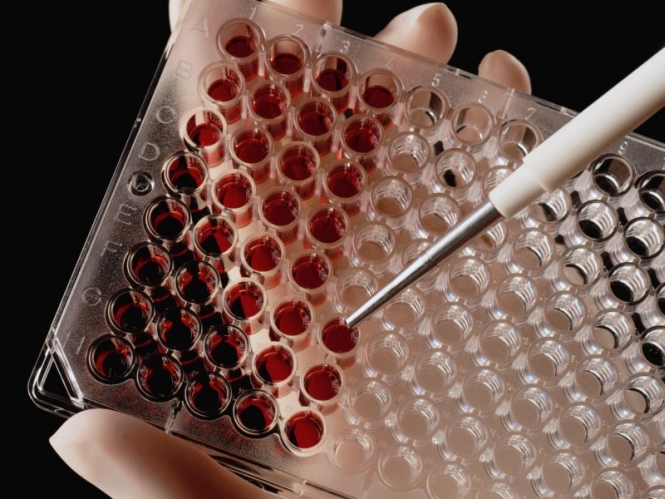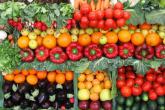Definition and origin:
The origin of the blood group A: The first immigrants, forced to adapt to a more agricultural diet and lifestyle, with a personality more suited to living together in large communities. Group A thriving on vegetarian diets - a legacy of their ancestors, farmers engaged in a peaceful, settled life. Our diets in most civilized lodge, a convenient attention-grabbing toxins in pretty packaging. But for the group A is particularly important to get food in the most natural form: fresh, clean and organic. If you follow this diet, you can strengthen the immune system and potentially prevent the development life-threatening diseases. After applying for group A diet you?ll loose your weight quickly. When you stop eating meat, in the beginning you may well lose weight because you eliminate toxic products from your diet. Animal foods slows the metabolism in patients with group A, as deposited in the body as fat. Dairy is also poorly digested by people with blood group A and provokes insulin reactions - another factor slowing down the metabolism. In addition, dairy products contain highly saturated fats that impair the heart and lead to obesity and diabetes.
|
|
|
Description of diet:
Wheat is a factor of equivocal activity in the diet group A. Those with blood group A can indeed eat wheat, but it should not eat too much, because then they will fall excessive muscle tissue acidification. Group A people can?t dispose energy so quickly, so inhibition of metabolism occurs. Group A should pay attention to healthy food, low fat and complement it with vegetables and cereals.
Products that you should eat and those you should avoid:
Meat and poultry
Advisable: Best for people with blood group A would be elimination of meat from their diet.
Inadvisable: lamb, pheasant, bacon, veal, venison, goose, duck, rabbit, partridge, hearts, ham, liver, pork, beef, ground beef.
Seafood
Advisable: cod, grouper, carp, salmon, mackerel, monkfish even during, rainbow trout, sea trout, sardines, whitefish, pike, white perch, snails, yellow perch.
Inadvisable: Barracudas, beluga, flounder, halibut, lobster, squid, caviar, crab, shrimp, smoked salmon, mussels, hake, mussels, perch, oysters, octopus, haddock, scallop, cancer, anchovy, sole, catfish, herring , bluefin tuna, eel, turtle, frogs.
Eggs and dairy
Advisable: Soy milk, soy cheese.
Inadvisable: Lean or 2% milk, cream, butter, buttermilk, whole milk, whey, cheese, brie, camembert cheese, gouda cheese, cottage cheese.
Oils and fats
Advisable: Olive oil, flaxseed oil.
Inadvisable: cottonseed oil, corn oil, peanut oil, sesame oil.
Nuts and seeds
Advisable: Peanut butter, peanuts, pumpkin seeds.
Inadvisable: Brazilian nut, cashew nuts, pistachio.
Beans and other legumes
Advisable: Red soya, aduke, azuki, black, pinto, green peas, "black eye" pea, green and red legume
Inadvisable: Copper, navy, red, kidney, tamarind bean
Cereals
Advisable: Amaranth, buckwheat.
Inadvisable: wheat germ, wheat bran, familia cereals, grape nut, seven grain, wheat, starch.
Bread and toast
Advisable: Essene bread, Ezekiel bread, bread with wheat sprouts, bread with soy flour, rice cakes.
Inadvisable: Englischer toast, rolls with bran, wholewheat bread, multigrain bread, bread from durum wheat, high-protein bread, pumpernickel.
Grains and Pasta
Advisable: buckwheat, groat, pasta from artichoke, soba noodles, rice flour, rye flour, oats.
Inadvisable: pasta with spinach, white flour, wholeweat flour.
Vegetables
Advisable: beetroot, broccoli, red onion, Spanish onion, yellow onion, pumpkin, radish, chicory, garlic, kohlrabi, cabbage headless, American artichoke, Jerusalem artichoke, okra, alfalfa sprouts, carrots, dandelion, parsnip, parsley, leek, turnip greens, romaine lettuce, spinach.
Inadvisable: eggplant, cabbage, Chinese cabbage, red cabbage, shiitake mushrooms, black olives, Greek olives, Spanish olives, mushrooms, peppers: red, green, yellow, jalapeno, tomatoes, potatoes: white, red, sweet.
Fruit
Advisable: pineapple, cranberries, blueberries, lemon, dried figs, fresh figs, grapefruit, cherry, blackberry, apricot, raisins, plums: dark, red, dry, green and cranberry.
Inadvisable: Avoid bananas, mandarin, mango, melon, coconut, orange, rhubarb.
Juices and beverages
Advisable: pineapple juice, dark cherry, grapefruit juice, carrot juice, apricot juice, celery juice, prune juice, water (with lemon).
Inadvisable: papaya juice, orange juice, tomato juice.
Spices
Advisable: Garlic, ginger, molasses, miso, barley malt, soy sauce, tamari.
Inadvisable: capers, balsamic vinegar, white vinegar, cider vinegar, red wine vinegar, white pepper, ground black pepper, red pepper, wintergreen, gelatin.
Herbal Teas
Advisable: Aloe, echinacea, hawthorn, St. John's wort, burdock, milk thistle, rosehip, chamomile, ginger, fenugreek, alfalfa, slippery elm, valerian, green tea, ginseng.
Inadvisable: Cayenne, red clover, rhubarb, sorrel, corn signs.
Stimulants
Advisable: Red wine, green tea, decaffeinated coffee.
Inadvisable: Coca-cola, decaffeinated black tea, black tea regularly, distilled liquors, soft drinks, beer, water, Selzer, soda water.
Other spices
Advisable: Mustard.
Inadvisable: Ketchup, mayonnaise, Worcestershire sauce.
Products recommended in weight loss diet:
? Vegetable oils - enhance the efficiency of digestion, prevent fluid retention,
? Soy products - enhance the efficiency of digestion, are rapidly metabolized,
? Vegetables - enhance the efficiency of metabolism, accelerate bowel movement
? Pineapple - increases utilization of calories, speeds up bowel movement.
Products not recommended in weight loss diet:
? Meat - poorly digested, stored in the body as fat, increases digestive toxins,
? Dairy - interferes with the metabolism of nutrients,
? Kidney beans - interferes with the secretion of digestive enzymes, slows metabolism,
? Limey beans - interferes with the secretion of digestive enzymes, slows metabolism,
? Wheat (in excess) - weakens the utilization of calories.















